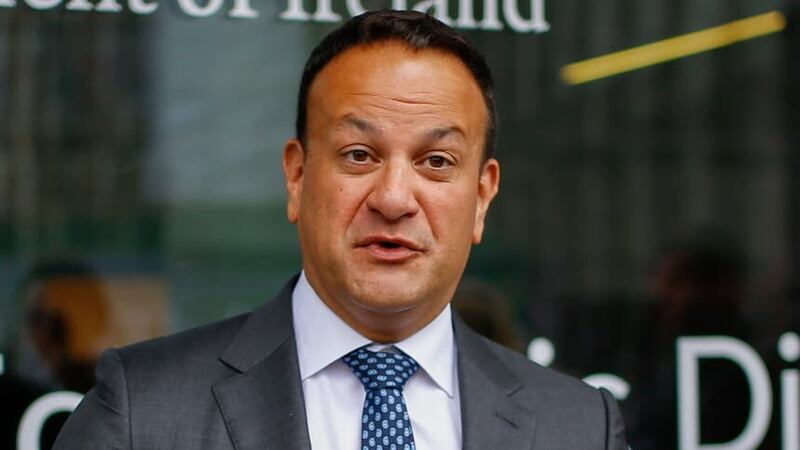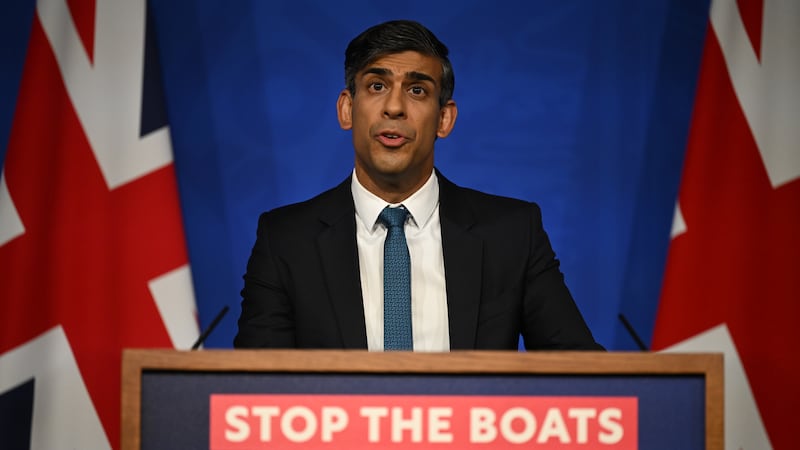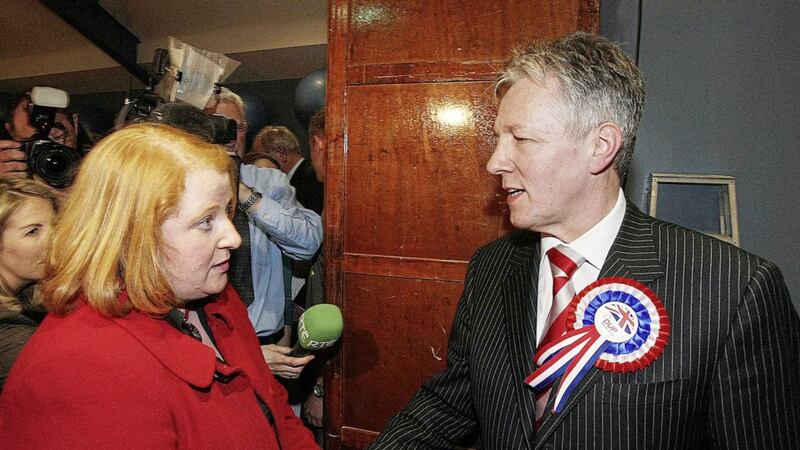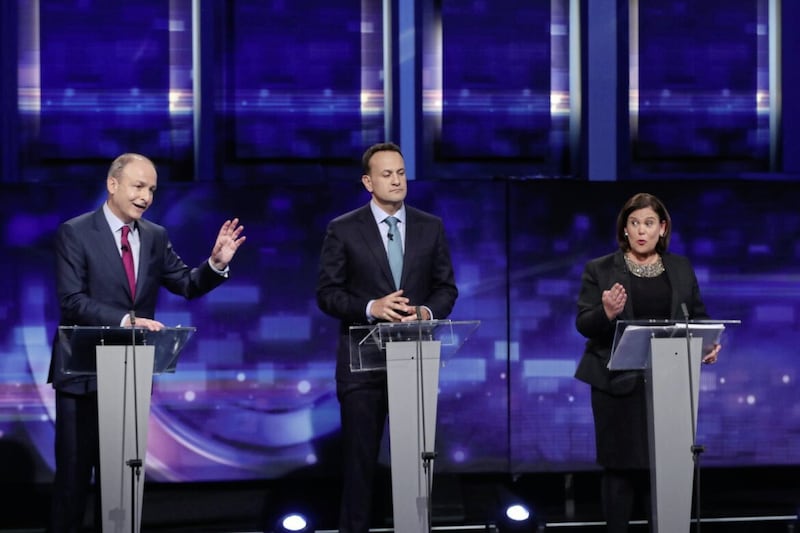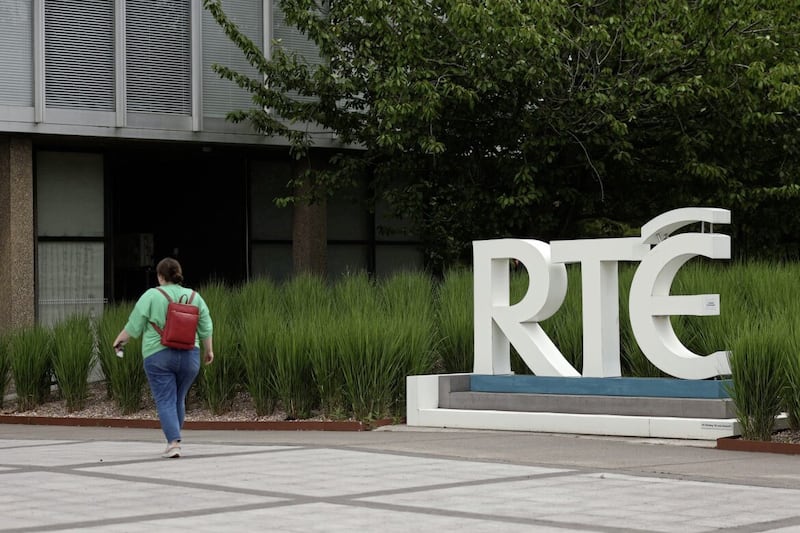ALTHOUGH the general election in the Republic of Ireland can be deferred until March 2025, the most likely date at the moment appears to be some time in the late autumn of 2024, preceded by the annual budget which would presumably include generous provisions to attract voters.
An earlier date cannot be ruled out of course, because as the American baseball legend Yogi Berra famously said: "It's tough to make predictions, especially about the future."
The latest poll to hand at time of writing is the Behaviour & Attitudes survey published last weekend by The Sunday Times, with Sinn Féin in the lead at 34 per cent (down one point since the previous B&A survey), compared to 21 for Fianna Fáil (also down one), 20 for Fine Gael (up three per cent) and the third leg of the ruling coalition, the Greens, rising by a point to six per cent.
That's a total of 47 percentage points for the coalition, which isn't far off the combined figure of 50 per cent that took the three parties into government after the last general election in 2020.
Somewhat more dramatic figures were published in The Irish Times last Thursday where an Ipsos poll showed a drop of four points for Sinn Féin, down from 35 to 31 per cent since the previous survey in the same series, whereas Fianna Fáil rose three points to 21 per cent, Fine Gael went down four points to 18 per cent and the Greens remained at four per cent. There's no lack of variety when it comes to polls.
Sinn Féin have been the most popular party in every opinion survey published in the newspapers since July 2021. That's a total of more than 60 polls, so it seems safe to assume, at present anyway, that they will have the highest number of TDs when the Dáil resumes after the next general election. But the opinion polls also indicate that they won't have enough TDs to form a single-party government.
Current Taoiseach Leo Varadkar has said he would resign – not just as Fine Gael leader but as a party member – rather than accept a coalition with Mary Lou McDonald's party, but there could be other options. The most obvious and possibly the most comfortable in terms of numbers would be a partnership with Fianna Fáil.
However, the Tánaiste and current leader of that party, Micheál Martin, partly influenced perhaps by the latest poll figures in that newspaper, told The Sunday Times: "We now have a three-party government that would still have enough support to be elected again as it stands."
There has been speculation that the Fianna Fáil leader might opt for a job on the European Commission which will be available in mid-2024 but he told The Irish Examiner last week that he would "absolutely" be staying in his present job: "I'm going in to fight in the next general election as leader of Fianna Fáil."
The current three-party government of Fianna Fáil, Fine Gael and the Green Party has a total of 82 members – 36 FF, 34 FG and 12 Greens – out of a total Dáil membership of 160. However, it won a controversial vote to remove an eviction ban last March fairly comfortably with the support of independent TDs and others. Although the figures look tight for the coalition parties, nobody at present expects them to lose any Dáil votes.
Interestingly, Green Party leader Eamon Ryan has not ruled out the possibility of coalition with Sinn Féin after the next general election, provided SF improves its performance on environmental issues. He told RTÉ Radio 1's This Week programme: "They have to start taking the environmental agenda seriously, and show the ambition and the scale of response,and the funding and the resources that need to go with that in their policy approach."
Maybe a coalition could be put together between Sinn Féin and the Greens as well as other small parties and independents. Approaches could be made to Labour, the Social Democrats, maybe even the far-left People Before Profit and, of course, the independents. There are 21 TDs in the latter category at the moment and no doubt a sizeable number will be elected to the next Dáil.
Meanwhile, mainly as a result of the war in Ukraine, the issue of Irish neutrality has come very much to surface in political terms and is likely to feature prominently in the general election.
President Michael D Higgins set the cat among the pigeons with an extensive interview on Irish neutrality last Sunday in the Business Post where he was quoted as saying that Ireland is "playing with fire" in a dangerous period of "drift" towards the North Atlantic Treaty Organisation (Nato).
Sharply critical of a Consultative Forum on International Security Policy organised by the government which is to be held over the coming days, he called for a greater focus on Ireland's role at the United Nations and said the Republic should engage "not just in consultation with the fading imperial powers, but with the emerging populations of the world".
Tánaiste Micheál Martin, who is Minister for Foreign Affairs and Defence, said in response: “Since Russia’s brutal and illegal invasion of Ukraine... every country in Europe has examined and re-examined its foreign, security and defence policies."
The recent Ipsos poll in The Irish Times found that, out of 1,200 adults interviewed at 120 sampling points across the state, 61 per cent favoured retaining the Republic's current model of neutrality. Any proposed changes would need to be carefully worded and sensitively handled.
